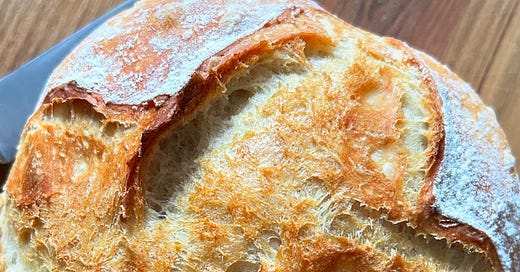Artisan Bread 101: Temperature
Why temperature is an ingredient and how to work with it (Part 1)
Bread friends, hello!
This post is part of my ongoing Artisan Bread 101 series. In each instalment, I answer reader questions and provide guidance on the core elements of artisan bread making. In the last instalment we discussed the ways in which salt plays a key role in slowing yeast fermentation and works to enhance and improve artisan breads. In today’s newsletter, I’m expanding on another crucial ingredient—temperature. While outdoor temperatures may be climbing for some of us, it’s a great time to unpack it even if only to help you prepare for future bakes.
I first wrote about temperature last summer in this newsletter in response to reader questions about the room and water temperatures indicated in my recipes. At the time, I shared the one thing I wish someone had told me when I first started baking artisan breads and why you should ignore much of the advice you encounter on the Internet.
In today’s newsletter, we’ll cover:
Recap: Ideal ingredient and room temperatures for baking artisan breads
Why I consider temperature to be an essential ingredient
The best way to measure ingredient temperature
The best way to measure oven temperature—and why you should do it
Why you will achieve your best results using a Dutch oven—including recommended brands
Answers to your most common questions—hint: they’re all about your oven
If you're catching up, don’t miss the earlier instalments:
Each post contains lots of notes, tips and encouragement to help you along the way.
P.S. The newsletter mentioned above also includes my reader-favourite Olive Artisan Bread recipe plus my best tip for getting pizza dough to rise more quickly when you’re pressed for time!
You can find my Everyday Artisan Bread recipe here.
This instalment is posted below for paid subscribers. Thank you for supporting my work!





